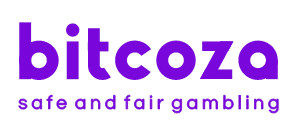The intersection of cryptocurrency and online gambling in the United States presents a complex legal environment that continues to evolve. While traditional online casinos face clear regulatory frameworks, crypto casinos operate in an unclear territory where federal and state laws often conflict or fail to address these emerging platforms directly. This regulatory uncertainty leaves both operators and players questioning their legal standing, especially as digital currencies gain mainstream acceptance. Understanding the current legal status of crypto casinos requires examining multiple layers of legislation, from decades-old gambling laws to modern financial regulations that shape this rapidly expanding sector.
Key Takeaways
- Crypto casinos operate in a legal gray area due to overlapping SEC and CFTC oversight and unclear federal regulations.
- The UIGEA restricts payment processing for online gambling but does not explicitly address cryptocurrency transactions.
- Most crypto casinos operate offshore to avoid U.S. regulations, making them technically illegal for American players.
- Over 30 states allow online gambling, but regulations specifically addressing crypto casinos remain limited or non-existent.
- Games of skill may retain legal status, while games of chance are generally considered unlawful internet gambling.
Current Federal Regulations
Multiple federal agencies maintain overlapping oversight of cryptocurrency operations:
- Securities and Exchange Commission (SEC)
- Commodities Futures Trading Commission (CFTC)
The regulatory environment creates notable distinctions:
- Games of chance fall under “unlawful internet gambling”
- Games of skill remain exempt from these restrictions
- Offshore platforms operate in a legal gray area
- Business violations carry significant penalties
While federal laws like the UIGEA of 2006 govern unlawful internet gambling payments, Bitcoin gambling remains in a gray area legally.
The decentralized nature of cryptocurrency presents ongoing challenges for regulators, particularly regarding:
- Transaction tracking
- Anti-money laundering compliance
- Platform accountability
- User anonymity protection
This regulatory framework continues to evolve as digital currencies gain wider acceptance and use.
State Laws Matter
Future developments appear promising, with Colorado’s regulatory environment expected to evolve alongside blockchain technology. Interstate collaboration may lead to more unified approaches, though some states remain cautious. New Jersey, for example, exercises particular care regarding crypto deposits because of recent market volatility and consumer protection concerns. Currently, over 30 states have embraced online gambling in some form, particularly for sports betting activities, showing significant progress in the industry’s acceptance across the country.
Operating Within Legal Gray Areas
While state-specific regulations provide some guidance, the federal environment for crypto gambling presents significant complexities. The Unlawful Internet Gambling Enforcement Act of 2006 restricts payment processing for online gambling but doesn’t explicitly address cryptocurrency usage. Games that establish skill as predominant over chance elements may maintain legal status under current regulations.
| Regulatory Aspect | Current Status | Impact on Operations |
|---|---|---|
| Federal Law | No specific crypto gambling regulation | Creates operational uncertainty |
| State Laws | Varies by jurisdiction | Requires careful navigation |
| Payment Processing | UIGEA restrictions apply | Limited banking options |
| Consumer Protection | Limited oversight | Reduced user safeguards |
| Compliance Requirements | Complex and evolving | Increased operational costs |
The legal framework becomes more complex when considering offshore platforms serving U.S. residents. These operations exist beyond U.S. jurisdiction, creating challenges for both regulators and users. Many platforms operate through VPN access, though this reduces consumer protection and legal recourse options.
Looking ahead, the industry faces potential changes as states develop frameworks for cryptocurrency regulation. New York and California are establishing guidelines that could influence crypto gambling operations. Federal intervention may eventually create a unified approach, though current operations must carefully navigate existing regulations while preparing for future developments.
Player Risks and Responsibilities
Players engaging in crypto gambling face substantial risks due to the limited consumer protections and regulatory oversight in the industry. The absence of dispute resolution mechanisms and challenges in recovering funds create significant vulnerabilities for users who experience unfair practices. With a market value of $280B projected by the end of 2023, the rapid growth of crypto gambling heightens these risks for players.
Security presents another critical concern, as crypto casinos are frequent targets for cybercriminals. Players must protect themselves against hacking attempts, phishing scams, and potential unauthorized access to their digital wallets. While blockchain technology offers some security, skilled hackers can still exploit vulnerabilities.
Key Responsibilities for Players:
- Understand and comply with state-specific gambling regulations
- Implement robust security measures for digital wallet protection
- Verify the legitimacy of crypto casino platforms
- Monitor transactions and maintain detailed records
- Practice responsible gambling behaviors
The lack of conventional safeguards means players must exercise heightened vigilance. With minimal identification requirements and limited prevention measures for problem gambling, individuals must self-regulate their activities. Players should recognize that participating in crypto gambling requires accepting significant personal responsibility for security, compliance, and risk management.
The Road Ahead
The future of crypto casinos in the United States remains uncertain amid complex regulatory challenges and growing industry momentum. With a current market value of $250 million and significant year-over-year growth, the sector shows substantial economic potential in spite of legal restrictions. A notable 21% of Americans have invested in cryptocurrencies, indicating significant public interest in digital currency adoption.
Several key developments will likely shape the industry’s trajectory:
- Potential federal legislation could explicitly address cryptocurrency gambling, providing needed clarity for operators and users
- State-level pressure for stricter regulation of offshore operators may impact cryptocurrency usage in online gambling
- International cooperation could lead to standardized oversight of crypto gaming platforms
- Industry standards may emerge to improve player protection and operational transparency
The path forward requires balancing innovation with consumer protection:
- Updated regulations must address both cryptocurrency and gambling aspects
- Improved oversight mechanisms need development to prevent criminal activities
- International coordination will be essential for managing offshore operations
- Public education initiatives should focus on responsible gaming and legal compliance
As the industry evolves, stakeholders must work together to create a framework that promotes innovation while protecting consumer interests and maintaining regulatory compliance.



